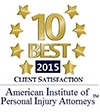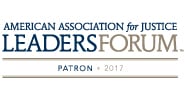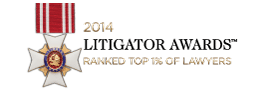Johnson & Johnson has long been one of the most respected companies in the health and personal care industries. It all began in 1886, when the Johnson brothers founded the company in New Jersey. The Johnson family’s intention was to make products that put consumer safety first, while making the world a better place. They created the first commercial first aid kits and went on to become one of the most popular names in first aid, due in part to the popularity of their Band-Aid brand of bandages.
The company continued to be a pioneer in the health industry, creating pregnancy kits to make childbirth safer and developing first aid manuals to help people deal with emergency situations. Johnson & Johnson also led the way in the personal care products market, with the first commercial production of sanitary products for women, a variety of dental hygiene products, the world’s most-used baby powder, and their ever-popular No More Tears baby shampoo. The company was also one of the first to make charitable giving part of their business strategy.
Johnson & Johnson and Medical Research
As the company experienced growth throughout the world, they expanded their focus to include medical research and product development. In 1949, subsidiary companies focused on pharmaceutical and medical device research and development began forming and in 1961, Belgium company Janssen Pharmaceutica joined the Johnson & Johnson family.
The focus on medical products and pharmaceuticals continued throughout the 70s, 80s, and 90s, with Johnson & Johnson expanding into vision care, mechanical wound closure, diabetes management, and minimally invasive surgical procedures, as well as HIV/AIDS research and treatment. It continued to merge with and acquire companies throughout the world, and today, many popular brands now fall under the J&J umbrella.
The accomplishments and massive growth of Johnson & Johnson and its subsidiaries, including Janssen Pharmaceuticals, have not come without turmoil. Despite the respect the companies have received throughout their more than a century of existence, there are also accusations of negligence, fraud, and illegal marketing. It’s easy to see how a company so large and overseeing so many products in so many markets would make mistakes, but some believe Johnson & Johnson subsidiary Janssen intentionally marketed drugs illegally to boost sales.
Profitable Products Bring Legal Trouble for Johnson & Johnson
According to company data, Johnson & Johnson now earns the bulk of its money from the medical devices and drugs it develops and sells. This includes artificial joint replacements, surgical tools, and heart stents, as well as medications for treating Crohn’s disease, schizophrenia, cancer, diabetes, migraines, heart disease, and attention deficit disorder.
Unfortunately, like all medications, use of these drugs can trigger side effects, some of which are severe and/or permanent. This is the case with Johnson & Johnson’s schizophrenia drug, Risperdal. For some patients, the risk for side effects is outweighed by the benefits, especially when treating something as debilitating as schizophrenia. For others, the use of the medication altered the course of their lives negatively, and had they known the potential for certain side effects, they would have chosen not to use the drug.
That’s the claim of many young male Risperdal users, all who allege the drug caused them to develop breast tissue (a condition known as gynecomastia) and also allege Risperdal’s manufacturer, Janssen Pharmaceutica, failed to make this risk clear to patients and doctors.
There are thousands of claims such as these against Johnson & Johnson and Janssen sitting on court dockets across the country, as well as several claims that have already been settled by the company and its subsidiary. So far, the company has settled thousands of cases involving illegal promotion of Risperdal, including charges filed by the Department of Justice. The company’s total expenditures for settlements is nearly $3 billion.
Risperdal Users Gynecomastia Proves Illegal Marketing Claims
One case, involving an Alabama man who eventually developed size 46DD breasts after using Risperdal for treating autism, was awarded $2.5 million by a jury that found Johnson & Johnson and Janssen guilty of not only keeping side effects a secret, but also illegally marketing the drug as safe for children after the Food and Drug Administration prohibited them from doing so.
The plaintiff’s case included evidence that more than half of Risperdal’s sales came from prescriptions for children, and for elderly patients, two populations not approved by the FDA for Risperdal use. Emails, business plans, and sales training manuals presented during the trial showed the company had organized sales units to target doctors treating children, as well as state mental institutions treating children.
Johnson & Johnson and Janssen maintain their innocence, with salespeople testifying during trials and in federal investigations that no laws were intentionally broken and any instance in which doctors were given child-sized doses occurred because the salesperson did not realize the doctor treated children. Some executives from Johnson & Johnson have also taken the stance that laws governing their actions are vague and designed to target companies that provide helpful information to doctors.
Have You Suffered because of Risperdal Use?
Patients are given a choice to make medical decisions for themselves and for their children based on safety information the FDA requires and the advice of their doctors. But what about when the safety information is misleading or their doctors are not properly informed? As is the case with Risperdal, misinformed choices lead to a lifetime of misery and regret.
Sources:
http://www.jnj.com/about-jnj/company-history
http://highline.huffingtonpost.com/miracleindustry/americas-most-admired-lawbreaker/

















